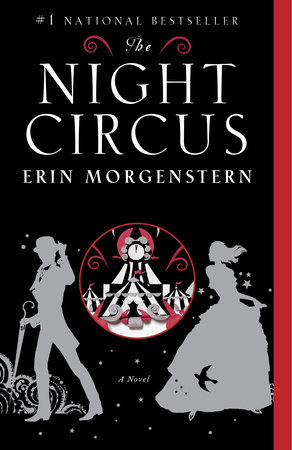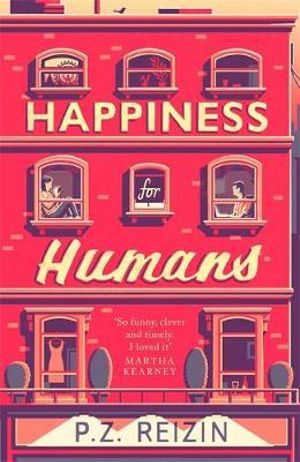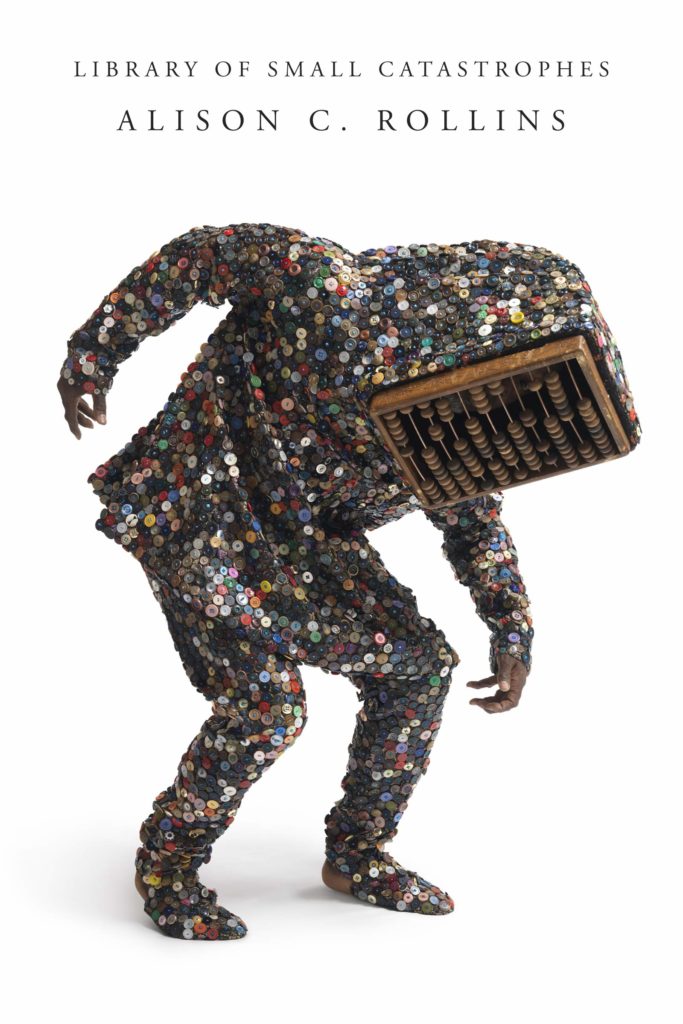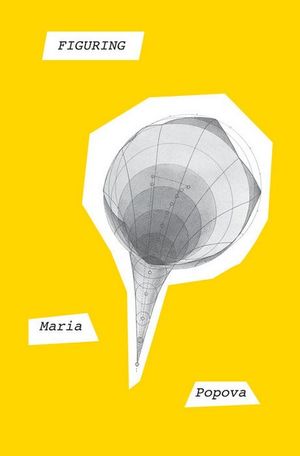The Night Circus by Erin Morgenstern and Happiness for Humans by P.Z. Reizin
Claire Thompson, Program Officer
I’m currently reading The Night Circus by Erin Morgenstern. This book came out quite a few years ago, and I remember it being popular then, but I never found the time to read it. It was only because my housemate recommended it to me last week when I was looking for a new book to read, that I decided to pick it up. I’m only halfway through, but so far am really enjoying it. The word that comes to mind to describe it is magical. The story traverses different years in the late 19th century to early 20th century. There are many different characters to keep track of, but the main plot focuses on two magicians, Celia and Marco, who both grow up knowing they must prepare for a duel, but do not know who this duel will be against or when it will happen. Tying the storylines together is the Night Circus, a mysterious and awe-inspiring circus filled with a colourful cast of circus performers. Reading this book transports you back to a place of childlike wonderment where anything is possible.
I’m also currently reading Happiness for Humans by P.Z. Reizin, which my other housemate recommended to me. It’s a witty, modern love story about Jen and Tom who end up on a blind date thanks to an AI called Aiden. Jen’s job is to spend her days talking to ‘Aiden’, to help him sound more human. Contrary to his programmer’s intentions, Aiden ends up ‘feeling’ human-like affection for Jen, and wants to help her find happiness after her long-term relationship suddenly ends. This is what prompts Aiden to orchestrate the blind date between Jen and Tom. Although I haven’t finished it yet, I’m finding Happiness for Humans is a funny, entertaining read with a clever twist on the stereotypical love story of boy meets girl.
Questions of Travel by Michelle de Kretser
Sarah Mott, Project and Communications Officer
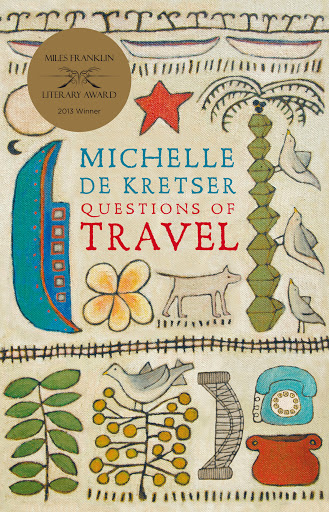
I think this book perfectly examines travel in the Australian collective psyche. Travel has become such an entitlement within middle-class culture that we’ve almost forgotten what a luxury this is not only for a majority for the world, but also a couple of generations ago. De Kretser uses multiple characters to explore identity, restlessness, displacement, excess and the Australian search for cosmopolitanism outside its borders.
This is also one of the few books I’ve read where I just need to pull myself out of the narrative to consider the many beautifully constructed sentences. De Kretser’s portraits of the many cities in the story shimmer with her unmatched ability to craft words together, sucking you down laneways and across piazzas. During isolation this was the perfect armchair travel companion. If you like a book that takes its own time, all the while pushing you to consider your own position on our collective national identity, as well as your own personal motives, this is for you.
Library of Small Catastrophes by Alison C. Rollins and Figuring by Maria Popova
Lou Garcia-Dolnik, Membership and Administration Officer
I’ve returned this month to Alison C. Rollin’s criminally underrated debut poetry collection, Library of Small Catastrophes. This has to be one of my favourite poetry collections. Alison’s gentle, insistent intelligence, her piercing cognizance of what makes a body, its histories, intersect beautifully at the point of every phrase, every line. Her masterful application of prosody, rhyme and rhythm conjure the barest elements of sexual violence, conditioned womanhood, what it means to be remade in language in the image of your captor’s/coloniser’s most harrowing and despised iconography—the beast, eater of numbers, creature malformed. There are so many lines I wish I could quote here to prove my case—’Venus Hottentot in a convex mirror / an interior coagulation of disembodiment’; ‘Today a man in a white coat… read me my body aloud: / is you is or is you ain’t / my uterus in translation’. I’ve never trusted language more than in Alison’s hands.
This month, I’ve also managed to make it halfway through Maria Popova’s Figuring, an intensely lyrical and imaginative account of the movers and shakers in Western arts, sciences and letters, mostly women, many queer, and, it bears being said, overwhelmingly white. The Brain Pickings founder and editor weaves documentary evidence, archival material, hypothesis and conjecture motivated by her own experience as a queer woman of letters together in an ambitious retelling of herstory since the 17th century, including Caroline Herschel, Margaret Fuller, Emily Dickinson and ecologist Rachel Carson. Around these constellate familiar names: Galileo, Nathaniel Hawthorne, Herman Melville, Walt Whitman, some also queer. It’s been a refreshing experience reading Popova rewild narratives of Western ‘progress’ into a more accommodating and somewhat diverse story, though I’m finding it increasingly hard to get past the flowery language which, at its best, diagrams vast cosmic connections between cities, continents and personal histories and, at worst, glosses over racism and classist exploitation. It’s still worth a read, albeit with a critical eye, for paying homage to the forgotten white women in history, if not for Popova’s loving insight into her intellectual predecessors.
The Darkest Web by Eileen Ormsby
Ashley Kalagian Blunt, Senior Program Officer
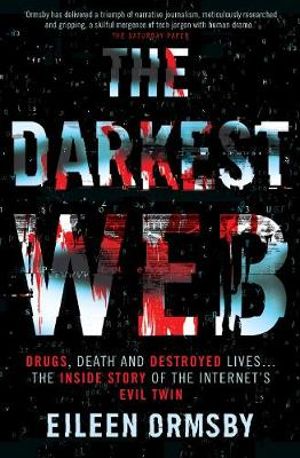
Melbourne author Eileen Ormsby is a lawyer, true crime writer and self-described dark web journalist. Her first book, Silk Road, traced the rise of the ‘eBay of drugs’. The Darkest Web expands on the Silk Road story, covering the arrests and trials of the site’s main players, and taking Ormsby on a visit to Bangkok’s infamous Klong Prem Central Prison. From there, she expands her focus, determining whether it’s actually possible to hire a hitman online, an investigation that leads to death threats. In the final section, she uncovers the darkest corners of the web, including the hurtcore empire run by a fellow Victorian. Ormsby is a skilled writer with a sly sense of humour, and her personal interactions with the cast of criminals she meets in her dark web explorations make for fascinating reading.
A Constant Hum by Alice Bishop
Julia Tsalis, Program Manager
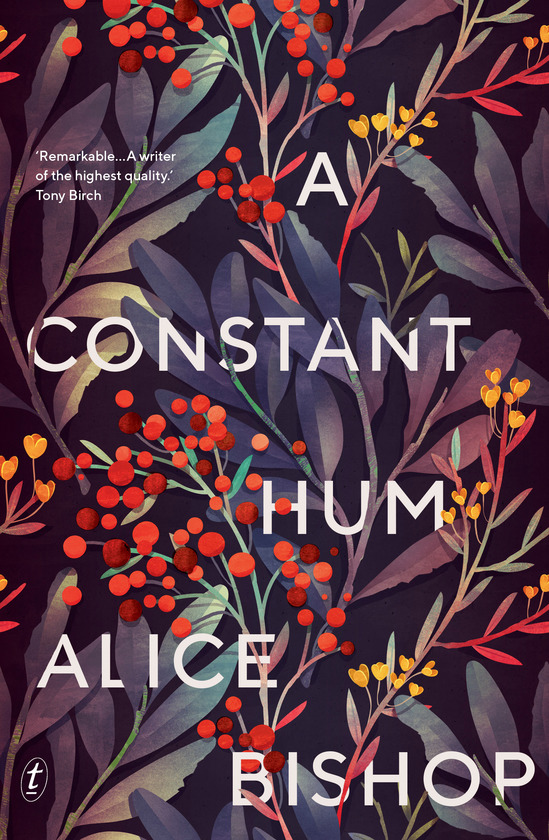
Alice Bishop’s A Constant Hum is a collection of short stories that responds to the Victorian Black Saturday fires. Some are short stories, some are brief paragraphs, some are more poetry than story. They tell of the sharp initial damage and the long-term ache caused by such loss of place and people and animals and landscape. In them people are grappling with loss and bereavement, fear of and a desire for home and regrowth.
At times I wanted to hear more from the individuals. I wanted to go back to hear how the mother who stops in the McDonalds car park after listening to how the Royal Commission was coping. I wanted to know more about the couple who had returned to their renovated home in the midst of their relationship crumbling. I kept expecting (and wanting) people to pop up in other stories so that I could see a narrative neatly woven together. I think this shows the strength of Bishop’s ability to engage you in the world of the people she has written about, however briefly.
It is also the beauty of the book that in giving many different perspectives it shows the varying ways that damage is done, that people suffer, and respond to trauma. It allows for a more realistic encapsulation of the experience. Rather than trying to shape the experience into the arc of one story, through the experience of one or a few people, the book gives you a constellation of experiences, showing the breadth and depth and range of the damage. It is a powerful work that will stay with you.
For an informed overview of the current state of arts funding I recommend reading Alison Croggon’s article Arts Funding: A survey of destruction.
*
More from Writing NSW
Check out our full range of in-person writing courses in Sydney, our online writing courses and our feedback programs to see how we can help you on your writing journey. Find out about our grants and prizes, as well as writing groups across NSW, and sign up to our weekly newsletter for writing events, opportunities and giveaways.

